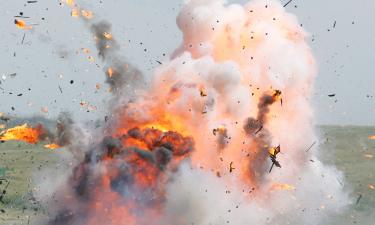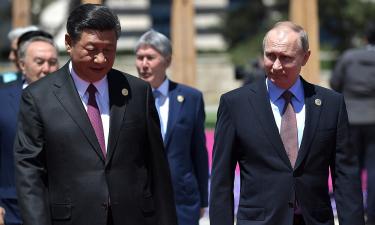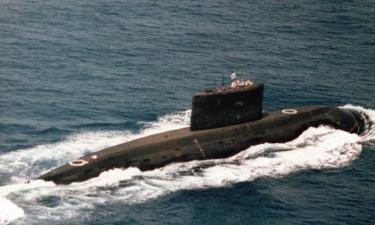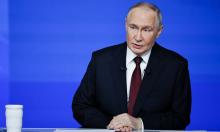The Western mind in Cold War 2.0
The second Cold War, this time between the U. S. and China, as untimely predicted in my essay titled Why the Coronavirus Pandemic is Accelerating the Remaking of World Order in the 2nd Cold War (published in April 2020), now produces an unintentional effect, namely, the closing of the Western mind (as illustrated in the following 6 main areas), which will further help the rise of China in this developing Asian Century.
Closing of the Western Mind in the 1st Area: Decoupling in Trade
The closing of the Western mind in the first area has to do with "decoupling” in trade, which started with the "trade war” initiated by the Trump administration to escalate tariffs on goods imported from China in 2018. The current Biden administration further intensifies decoupling from China with the "CHIPS and Science Act of 2022” (in August) and the wide-ranging tech restrictions on China (in October).
But "decoupling” like this will hurt the U. S. in three ways, though unintentionally.
First, many countries (like Germany, Japan, South Korea, Vietnam, Mexico, Taiwan, Malaysia, Indonesia, India, and many others) will fill the gap, in different degrees, by seeking legal loopholes and seizing business opportunities, even when bullied by the U. S. to stay united against China.
Second, many U. S. tech companies will risk losing the vast Chinese market after decades of billion-dollar investments (while local Chinese competitors will be happy to fill the gap), and the CHIPS and Science Act as well as the wide-ranging tech restrictions on China will therefore risk producing an acute supply glut in the U. S. in due time (with little export to China, which is now the world's largest trading nation), so many of them will likely ask for prolonged (U.S.) government subsidies to survive (though initially granted under the CHIPS Act), which, unfortunately, are often neither politically popular nor financially sustainable in the long run.
And third, China will accelerate its "dual circulation economic policy” for self-reliance and flood the world market with its own mass production (of chips and other tech products) in due time, so the Chinese share of world market in chip and other tech productions will substantially increase instead, contrary to the original intention of the U. S. By analogy, also as a moral lesson, the ban of China from the International Space Station (ISS) by the U. S. created an unintentional effect, which instead forced China to build its own space station, which has just been completed with the launch of the Mengtian module, the 3rd and final component, on October 31 -- whereas the ISS is getting old (obsolete) and will retire in a few years, so the only space station left by then will be the Chinese one, contrary to the original intention of the U. S. ban.
Closing of the Western Mind in the 2nd Area: Sanctions in Finance
The closing of the Western mind in the second area has to do with "sanctions” in finance, which expand during the Russia-Ukraine Crisis with the massive sanctions on Russia in 2022 (like freezing and confiscating Russian assets in Western institutions and banning it from the use of SWIFT and Visa/Mastercard), whereas other sanctions have also been imposed on China in the last few years.
But "sanctions” like this will hurt the U. S. in two ways, though unintentionally.
First, Western sanctions will contribute to the further erosion of confidence in the dollar and euro in global finance, as many non-Western economies (like Russia, China, India, Saudi Arabia, Iran, UAE, Venezuela, Turkey, North Korea, Cuba, Pakistan, Afghanistan, Nicaragua, and others) are actively exploring the use of "non-Western” currencies (like the yuan, ruble, rupee, etc.) and of "digital” currencies (like "digital yuan”) in their trade relations.
And second, Western sanctions will lead to the further decline of Western-dominated international payment systems, as many non-Western economies (like Russia, China, and others) are already implementing alternative financial transfer systems (like SPFS and CIPS), just as they are also switching to UnionPay (China's Visa and Mastercard alternative, which is accepted by more than 50 million merchants in 180 countries around the world, by May 2022, according to Fortune magazine) and Mir (Russia's Visa and Mastercard alternative).
Closing of the Western Mind in the 3rd Area: Spy Hunt in Education
The closing of the Western mind in the third area has to do with "spy hunt” in education, which intensified with the "racial-profiling” of ethnic Chinese and others in the U. S. during the Trump administration and now becomes worse with "spy busters” in the Biden administration, and theSenate also passed the "S-590” bill to "tighten controls on China-funded Confucius Institutes on U. S. university campuses” in 2021 (just as the new UK prime minister Rishi Sunak "promises to ban all 30 China's Confucius Institutes in Britain” in 2022).
But "spy-hunt” like this will hurt the U. S. in two ways, though unintentionally.
First, it will impede American scientific and technological growth, since a New York Times article on Nov. 28, 2021 was titled "As U. S. Hunts for Chinese Spies, University Scientists Warn of Backlash” and warned that "a chilling effect has taken hold on American campuses, contributing to an outflow of academic talent that may hurt the United States while benefiting Beijing.” In 2019 alone, foreign-born (especially Chinese) scientists and engineers in the U. S. accounted for 23.1% of "all STEM [Science, Technology, Engineering, and Math] workers” in the U. S., who are "critical to the country's innovation, responsible for many of the cutting-edge ideas and technologies that create jobs and raise the living standards of U. S. households,” according to the American Community Survey (ACS).
And second, it will benefit the Chinese development of science and technology, as many Chinese scientists and engineers which had contributed to American scientific and technological prowess in the last few decades are now returning home to accept new job opportunities under the "Thousand Talents Plan” in China, at a time when they live in fear and are treated with mistrust in the new toxic atmosphere of "spy hunt” in the West. Does anyone still remember the "story of Qian Xuesen” at M. I.T., who worked in the Manhattan Project to help the U. S. develop the atomic bomb during WWII but was later deported to China, due to the anti-Communist "Red Scare” in the 1950s (after being falsely accused of being a "Chinese Communist” without any evidence and having spent 5 years of "house arrest” in the U. S.) -- and, after his forced return to China, he went on to help China develop the atomic bomb in the 1960s? The former Navy Secretary Dan Kimball once spoke of "deporting Qian” (after house-arresting him for 5 years in the U. S.) as "the stupidest thing this country ever did. He was no more a Communist than I was.”
Closing of the Western Mind in the 4th Area: Hate Crimes in Civil Society
The closing of the Western mind in the fourth area has to do with "anti-Asian hate crimes” in civil society, especially after President Trump's "Chinese virus” ("kung flu”) narrative in 2020, when "hate crimes against people of Asian descent in U. S. cities surged more than fourfold in 2021” alone, according to the Center for the Study of Hate and Extremism; sadly, anti-Asian hate crimes still continue in the states.
But "hate crimes” like this will hurt the U. S. in two ways, though unintentionally.
First, they perpetuate a culture of racial violence and a society of racial victimization, which are antithetical to the democratic ideal of equality among citizens, with the "bully” as the alleged "superior” and the "bullied” as the alleged "inferior,” resulting in poisonous social tensions among different racial and ethnic groups for decades to come.
And second, hate crimes alienate many Asian Americans in the U. S., who are, on average, the most educated and have the highest income per household (by racial group), at a time when their Asian cultural heritage, their American upbringing, and their professional prominence are urgently needed to contribute to the U. S. foreign policy by invaluably bridging the gap between the 2 superpowers in the second Cold War, but this alienation has pushed them away and made them feel like they do not belong.
Closing of the Western Mind in the 5th Area: Extremist Populism in Political Society
The closing of the Western mind in the fifth area has to do with "extremist populism” in political society, when America, especially since the Trump administration, is deeply divided into two polarizing political groups, namely, "MAGA politics” on the "Far Right” (more in the "red states” than in the "blue states”) and "ANTIFA politics” on the "Far Left” (more in the "blue states” than in the "red states”), as already addressed in my essay titled "The Future of Extremist Populism in Contemporary American Politics” (published on June 07, 2022).
But "extremist populism” like this will hurt the U. S. in two ways, though unintentionally.
First, it polarizes American politics into two major sides of the political divide, the "MAGA” camp and the "ANTIFA” camp, with extremist views on both sides not seeing eye to eye, to the extent that there is a risk of what many political pundits now call a potential "civil war” of some sort between the two extremist camps -- whether small or big, and whether local or national.
And second, it stresses out the "moderates” and "independents,” who do not see themselves as belonging to either of the two extremist camps, as they struggle to find a third ground, like the recent formation of the "Forward Party” in Sept. 2022, but third parties often do not materialize much in the history of American politics.
Closing of the Western Mind in the 6th Area: Containment in Global Relations
And the closing of the Western mind in the sixth area has to do with "containment” in global relations, when the Biden administration resorts to the new containment ideology of "democracy vs. autocracy,” just as previous administrations in the first Cold War found solace in the old containment ideology of "capitalism vs. communism.”
But "containment” like this will hurt the U. S. in two ways, though unintentionally.
First, the U. S. under the Biden administration commits the (second) mistake (illusion) to believe that the U. S. and China are more fundamentally different than similar, such that the rise of China must be "contained” (as they, the "autocrats,” are not like us, the "democrats”) -- just as the U. S. under previous administrations committed the (first) mistake (illusion) to believe that "globalization” would eventually transform China into a "Western” liberal-democratic, capitalist society. The wake-up call to face the first illusion (of globalization) is that the Chinese in China can no more be transformed to become Westerners, any more than the Westerners in the West can be transformed to become Chinese. And the wake-up call to face the second illusion (of containment) is that China can no more be prevented from rising, any more than the U. S. can be prevented from growing. Both illusions are the products of die-hard "American exceptionalism,” which in turn is a historical legacy of Western colonialism in the Non-West since the modern era.
And second, the U. S. under Trump and Biden in the second Cold War has been so obsessed with confronting China's rise that it lacks a "strategic vision” to open dialogue with China for cooperation in a win-win transformation of the whole world in the Asian Century. As Henry Kissinger recently warned, the current U. S. foreign policy with China is dangerously guided by "the emotion of the moment” (with a "feel good” rhetoric to arouse American nationalism), without any strategic vision for the future.
Conclusion: The Closing of the Western Mind in the Asian Century
In the first Cold War, the American "containment” narrative was to portray the West as the "free world” of "capitalism” and the East as the "repressive world” of "communism.” In the second Cold War of our time, the American "containment” narrative is to portray the West as the "free world” of "democracy” and the East as the "repressive world” of "autocracy.”
But "what is in a name” (or word)? Perhaps there is something to learn from this question in Shakespeare's "Romeo and Juliet,” which is that what smells equally good as a rose can still be a rose, regardless of how it is named -- but the point here is: Smell the rose but do not swallow it. Similarly, the word "containment” means containment, regardless of whether it sounds like "capitalism vs. communism,” "democracy vs. autocracy,” or any other hypnotizing dichotomy, because they are all propaganda for gullible ears.
Does the world really need another Cold War, when the enormous costs of the first Cold War on the world have yet to be objectively calculated, in regard to myriad war refugees, countless war deaths, callous sufferings from trade embargos, massive environmental destructions, inhumane mass hunger in global south, awful social insecurity, widespread political suppression, and the like? And is the world ready for another Cold War, when the dusts of the first Cold War have yet to completely settle down?
Whatever the answers may be, the "one-dimensional” mindset which controlled both the Western and Eastern worlds in the first Cold War was so intellectually suffocating and emotionally stiffening to the human mind that it is therefore necessary to now ask, Has another closing of the human mind in this second Cold War already started?
One only needs to look at the steady closing of the Western mind in the U. S. and its allies when dealing with the rise of China (and soon India) in this developing Asian Century, as illustrated in the above 6 areas. How the world is now turned upside down, when the West is busy closing down Confucius institutes (from China), but China is opening up to institutes from the West (e.g., the Goethe Institut, the Institut français, the British Council, the Istituto Italiano di Cultura, the United States Information Agency, etc.)!
The rise of China (and India soon) is something that the contemporary West is not accustomed to accept, as the latter has dominated global politics since the modern European colonial era. But this era of Western dominance is now ending and causing widespread anxiety (and bad wishes) in the Western world (as already addressed in my 2007 book titled "Beyond the World of Titans, and the Remaking of World Order”).
Those who are repetitively told that they are the freest (or "we are the free”) are often most enslaved to this belief without examining how unfree they in fact are in flattering themselves and demonizing others, and this is only to say that they close their mind to alternative reality without knowing it -- with self-destructive (unintentional) consequences (as illustrated in the above 6 areas).
But do not expect Western mainstream mass media to seriously address this existential predicament, because it is so politically incorrect. Thus is the closing of the Western mind in the 2nd Cold War.
About the author:
Dr. Peter Baofu is an American visionary and author of 177 scholarly books and numerous articles (as of October 2022) to provide 143 visions (theories) of the human future in relation to the mind, nature, society, and culture -- and had been in 123 countries around the world (as of November 2022) for his global research on humanity, besides knowing 10 languages with different degrees of fluency. He was interviewed on television and radio as well as by newspapers around the world about his original ideas and visions of the human future. He was a U. S. Fulbright Scholar in the Far East and had taught as a professor at different universities in Western Europe, the Caucasus, the Middle East, the Balkans, Central Asia, South Asia, North America, and Southeast Asia. He received more than 5 academic degrees, including a Ph. D. from the Massachusetts Institute of Technology (M.I.T.), was a summa cum laude graduate, and was awarded the Delta Sigma Pi Scholarship Key for being at the top of the class in the College of Business Administration, with another student.
Subscribe to Pravda.Ru Telegram channel, Facebook, RSS!





